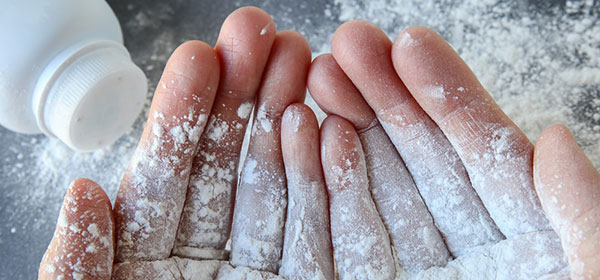Earlier this week, a California jury awarded $525 million to Eva Echeverria, who claimed that her use of Johnson & Johnson Baby Powder caused her terminal ovarian cancer.
Talcum powder has been used for decades, not only on babies, but by people of all ages.
The results of this case beg the question: why isn’t there a warning on the label? And what other seemingly innocuous household products could cause cancer?
Talcum powder is made from talc, a soft mineral that absorbs moisture, keeping skin dry and preventing rashes. Talc deposits are often found near asbestos ore, because the two ores are similar. In the past, asbestos was found in some talcum powder which, when inhaled, could have caused cancer.
However, the current case for talcum powder being carcinogenic may not be clear cut.
Last year, Cancer Council NSW released a report about the link between talcum powder and cancer, which stated no correlation between the two.
“In its natural form, some talc may contain asbestos, which is known to cause cancer. However, modern domestic talcum powder does not contain asbestos,” states the report.
“When you mine talc in it’s natural form it has asbestos, but it’s removed before it is allowed for human use,” said Cancer Council Australia Chief Executive Professor Sanchia Aranda.
But there is confusing information about whether there is a relationship between cancer and talcum powder. The Cancer Council Australia website lists situations with an ‘inferred risk of cancer’, which includes ‘perineal use of talc-based body powder’ as one such risk.
But the Cancer Council NSW report maintains that “some studies report a slightly increased risk, while others have found no increase. The evidence is insufficient to conclude that use of talcum powder leads to an increased risk of ovarian cancer”.
Prof Aranda believes that past studies linking talc to cancer may have been flawed.
Until the inconsistencies surrounding links between talcum powder and cancer are resolved, court cases, such as Ms Echeverria’s will hang in the balance. In the US alone, there are thousands of similar cases pending.
Prof Aranda has no qualms about using talcum powder.
“I would not be concerned at all,” she said.
Do you use talcum powder? Would this knowledge stop you from using it? Or are you comfortable the talcum powder is safe for you and your family?
Related articles:
Cancer can be the result of bad luck
Do you have lung cancer?
Cancer tests: which tests to have and when to have them

